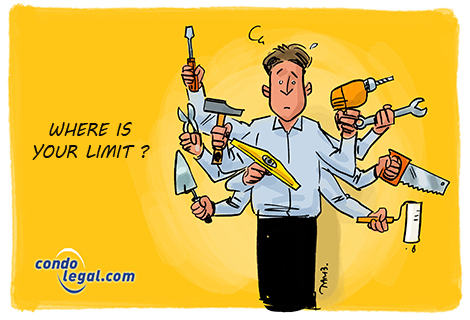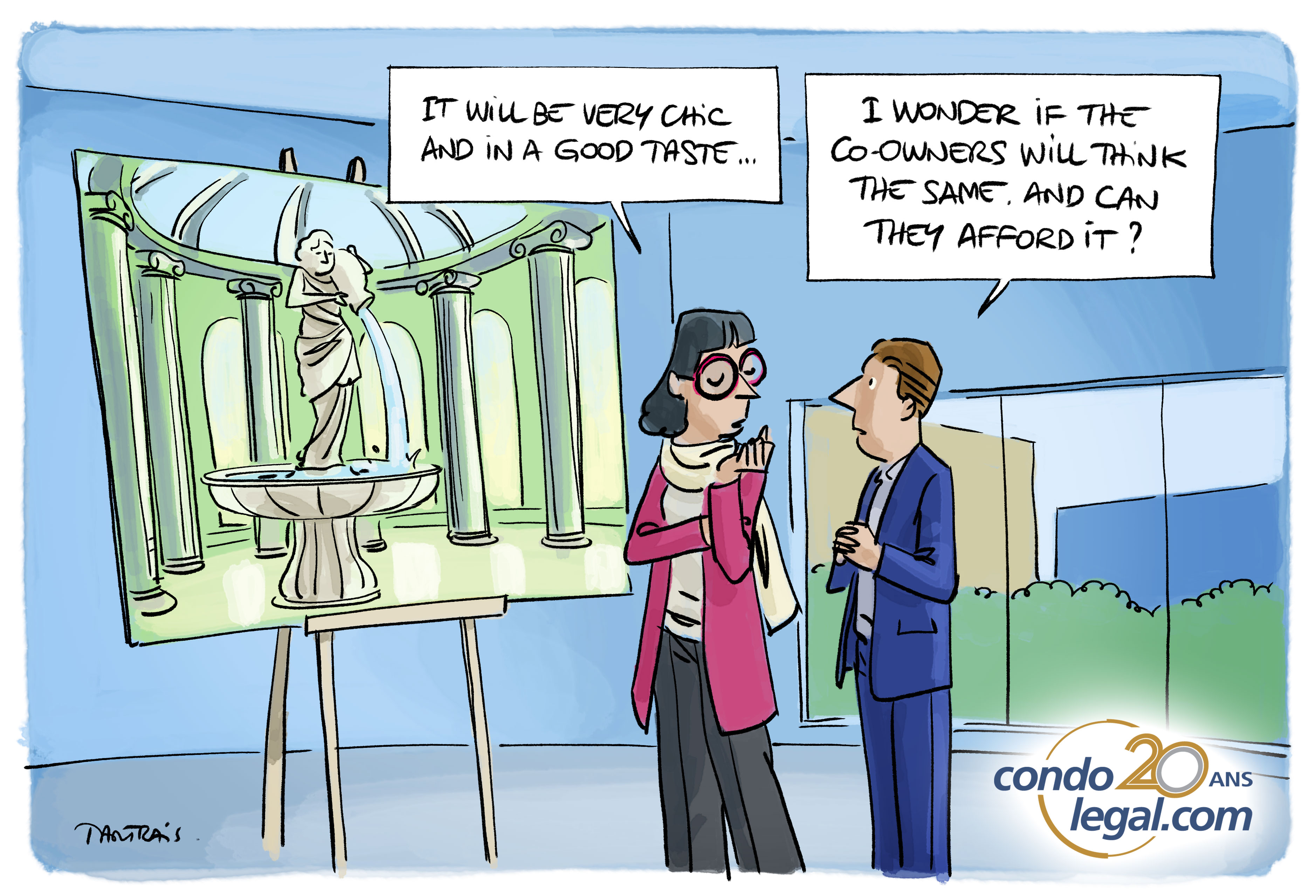10 Articles

Over time, various maintenance or improvement works will become necessary, sometimes requiring the syndicate to access private portions, or even to carry out the work within them. To prevent any obstruction of essential work for the syndicate of co-owners, Article 1066 of the Civil Code of Québec states that no co-owner may hinder the execution, even within their own private portion, of work required for the preservation of the building or urgent work decided by the…...

Every syndicate of co-owners has obligations regarding common portions maintenance. Article 1039 of the Civil Code of Québec provides that "Upon the publication of the declaration of co-ownership, the co-owners as a body constitute a legal person, the objects of which are the preservation of the immovable, the maintenance and administration of the common portions, the protection of the rights appurtenant to the immovable or the co-ownership, as well as all operations of common interest”. However,…...

Before starting renovation work in your apartment, keep in mind that you live in a condo. Performing such work requires that you carry out prior verifications. It is necessary to refer to the declaration of co-ownership to know the co-owner’s rights and obligations toward the syndicate. It goes without saying that your work must not affect the rights of other co-owners and occupants of the immovable. In addition, it is important to know if your…...

To maintain the common portions of the co-ownership and ensure the preservation of the immovable, it is necessary for the syndicate to subscribe to a certain number of maintenance or construction contracts. As the representative of the syndicate of co-owners, it is the board of directors that generally has the power to subscribe to all the contracts of the co-ownership. To manage costs and determine the obligations of each, it is essential for directors to…...

All co-ownerships have common portions that need to be maintained. These may include corridors, stairs, gardens and elevators. The syndicate has an obligation to ensure their maintenance, since the declaration of co-ownership generally provides that it is the main person responsible for them. In addition, article 1039 of the Civil Code of Quebec stipulates that the syndicate has the obligation to ensure the preservation of the immovable and, by the same token, the maintenance of common portions.…...

Every syndicate of co-owners has obligations regarding common portions maintenance. Article 1039 of the Civil Code of Québec provides that the object of the syndicate is the conservation of the immovable, the maintenance and the administration of the common portions. However, this section was amended following the adoption of Bill 16. At the end of the first paragraph, referring to the syndicate of co-ownership, it reads the following sentence: "The legal person must, in particular, see to it that…...

With the entry into effect of the Civil Code of Québec in 1994, the legislator introduced the obligation for every syndicate of co-owners to have a contingency fund in order to anticipate and to finance the future expenses to repair and to replace the common portions; this fund is strictly reserved for major repairs as well as replacements of the common portions and it shouldn't be used to ensure their maintenance. Furthermore, Bill 16 modified the Civil…...

Every syndicate of co-owners has obligations regarding the maintenance of the common portions. The certificate of the state of the immovable is an essential step in ensuring the preservation of the immovable; it constitutes a preliminary step before seeking the services of a professional to conduct a contingency fund study. The certificate of the state of the immovable acts as a "report" of the immovable, that is to say that it observes the quality of the building at…...

Works for the alteration, enlargement or improvement of the common portions are subject to a special regime. On the one hand, such work must be the subject of a formal authorization from the meeting of co-owners, by the enhanced majority of article 1097 of the Civil Code of Quebec. On the other hand, this kind of work must be compatible with the destination of the immovable and not infringe the rights of the co-owners over their private portions. This strict…...

The plans and specifications of a constructed (as) built are essential tools for the syndicate of co-owners, responsible for managing the common areas and ensuring the preservation of the building. Kept in the register required under article 1070 of the Civil code of Québec, these technical documents provide an overview of the building's design, modifications, and renovations, thereby facilitating its maintenance and management. They help in better planning of future work and preventing costly mistakes.…...
